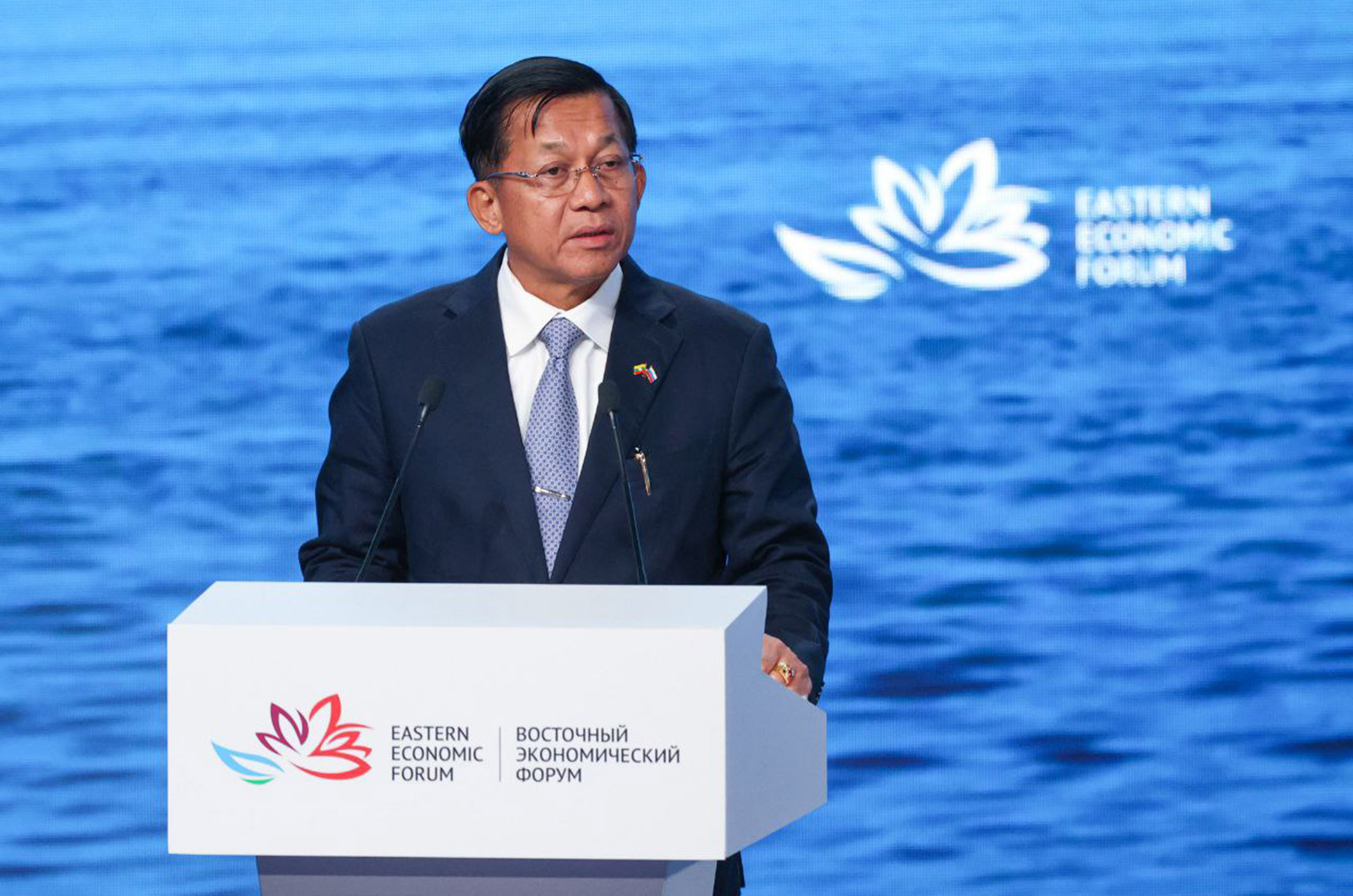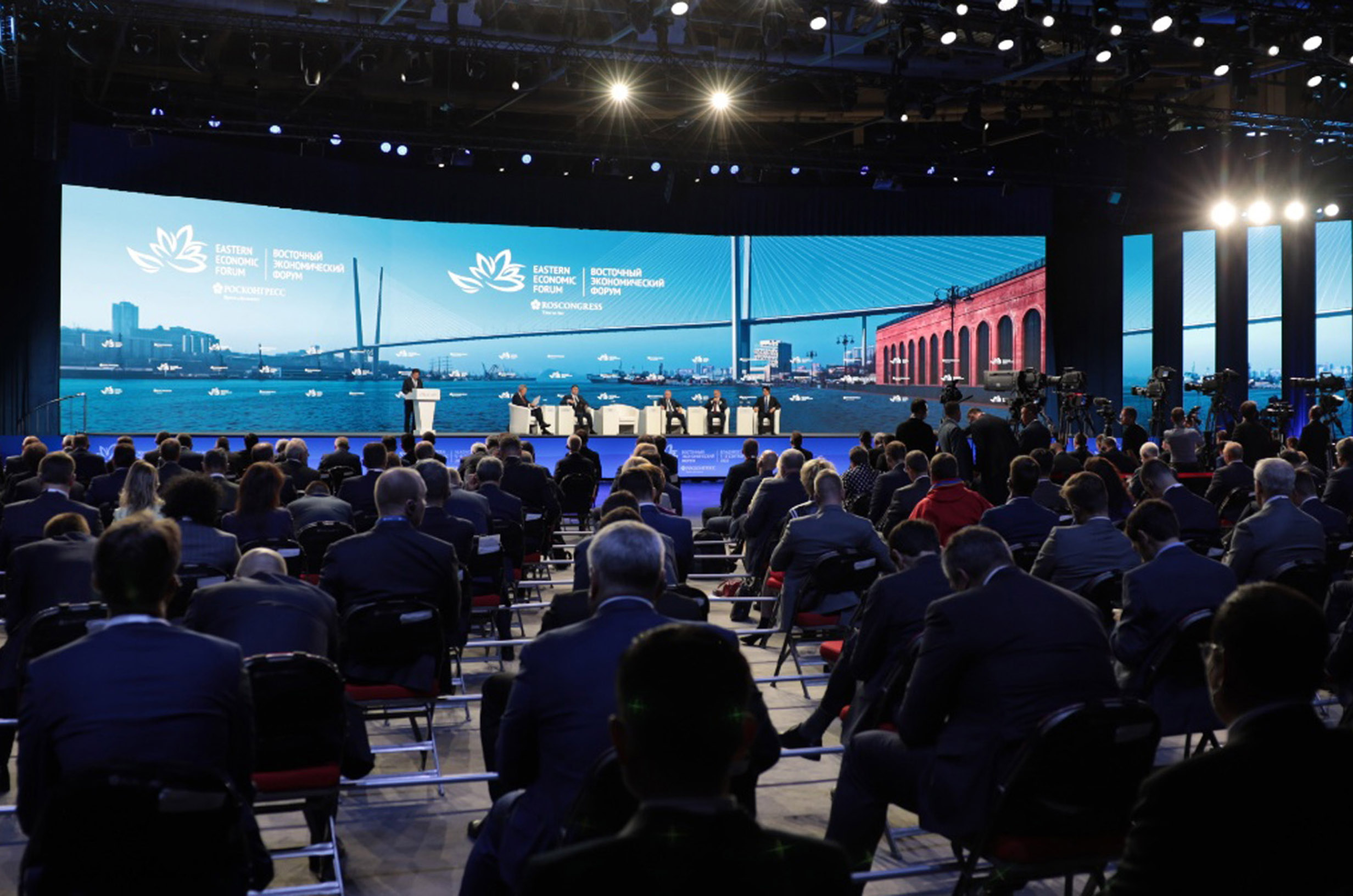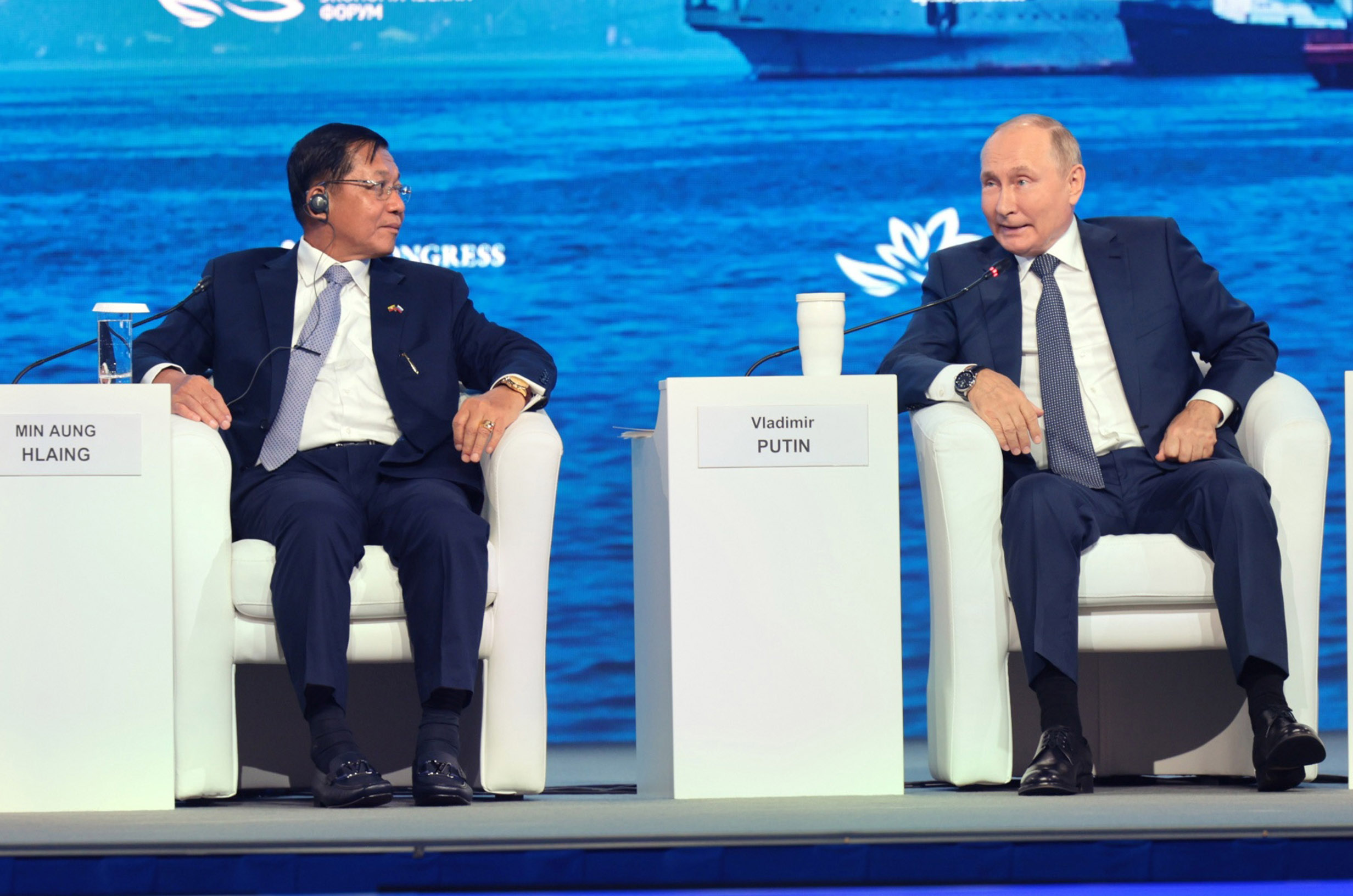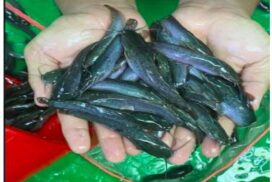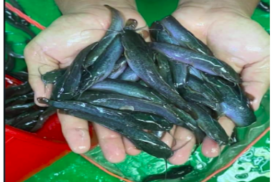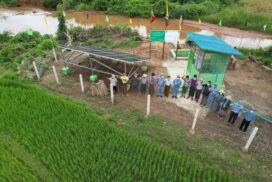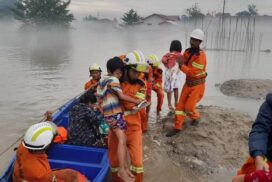SAC Chairman Prime Minister Senior General Min Aung Hlaing participates in the plenary session of the 7th Eastern Economic Forum-2022
Chairman of the State Administration Council Prime Minister Senior General Min Aung Hlaing yesterday afternoon participated in the Plenary Session of the 7th Eastern Economic Forum-2022 held on the campus of Far Eastern Federal University (FEFU) in Vladivostok of the Russian Federation.
The plenary session was attended by President of the Russian Federation Mr Vladimir Putin, Prime Minister of Armenia Mr Nikol Pashinyan, Mongolian Prime Minister Mr Luvsannamsrain Oyun-Erdene, Chairman of the Standing Committee of the National People’s Congress of the People’s Republic of China Mr Li Zhanshu and delegation members, Chairman of the State Administration Council Prime Minister Senior General Min Aung Hlaing together with Council Joint-Secretary Lt-Gen Ye Win Oo, Union Ministers U Win Shein, Dr Kan Zaw, U Hla Moe, U Khin Maung Yi, U Thaung Han, Dr Myo Thein Kyaw and Dr Thet Khine Win and Governor of the Central Bank of Myanmar Daw Than Than Swe, Ambassador of Myanmar to Russian Federation U Lwin Oo and business delegates from more than 90 countries.
At the plenary session, President Mr Vladimir Putin discussed the current development of Russia’s eastern region, the situation to support the improvement of competitiveness in investment, the establishment of special economic zones for attracting cooperation of investors from Asia and the Pacific Region, efforts for the emergence of a port with the improvement of communication technologies to admit docking of cargo ships, and a plan underway to emerge a northern sea route which will link Asia with Europe.
In his discussions under the title “The important role of Myanmar in the food security sector and good opportunities in investment”, the Senior General said that as the energy necessary for the daily life of a human is obtained from foods, food security is the most crucial and most important for all human beings across the world. Food security was defined for many decades as the sufficient supply of food to all living beings residing in a country. But the definition has changed this era as every country produces foodstuffs in compliance with the developing trade measures. Especially, global countries import foodstuffs from the international market due to a lack of capability to produce them at home, so financial security gradually influences food security.
In trading inputs such as fuel and fertilizers necessary for agriculture which plays a key role in food security, some countries utilize dollars as a tool because of the status of dollars in connection with financial security. As such, small countries become victims of dollars manipulated by big countries. It can be seen that those small countries are unable to defy the political and economic sectors against the big countries. Myanmar can use currencies such as ruble, yuan and rupee in the placement of dollar. Moreover, the dollar can be substituted with a barter system. If so, small countries can overcome the difficulties of monetary bullying. Hence, the Senior General requested the powerful friendly countries to give a helping hand to them.
A country needs to have availability of adequate food volume, foods at fair prices and healthy foods in implementing food security. If healthy foods can be sufficiently purchased at fair prices in a country, such a country can be identified as a food sufficient country. The main challenges related to the food security of a country are growing population, rising the food demand, changes in food prices, shortages or disappearance of crop varieties, climate change, scarcity of water and lands for agriculture and livestock farming, food waste and extinction and wasting of foods for various reasons.
As the global population rose in past years with increasing life expectancy, the number of the world’s population will reach 8 billion in coming November 2022. Researchers and experts estimate that the world’s population will reach 8.5 billion in 2030, 9.73 billion in 2050 and 10.4 billion in 2100. Food supply is crucial for the daily requirement of every person, not clothing and accommodation. So, it is necessary to emphasize solving the food problem. Food demand will be higher together with the growing number of population, and especially, basic staple foods such as rice and wheat, oil and oil crops, meat and meat products, and milk and dairy products as well as crops will face remarkably high demand.
Myanmar is located in Southeast Asia as a strategic area geographically bridging two large oceans, playing an important role in the Indo-Pacific region. Likewise, ASEAN member states are playing a significant role in restoring regional peace and stability, standing as the countries with many opportunities for economic development.
The ASEAN comprising 10 member states is home to more than 660 million population. It produced more than 191 million metric tonnes of rice, more than 45 million MT of maize, more than 144 million MT of sugarcane and more than 79 million MT of tapioca in 2020. ASEAN countries are able to produce a large volume of basic foodstuff with exportation to foreign countries, taking a leading role in the world food security measure. In the trade sector, ASEAN countries possessed a trade value worth some US$2.6 trillion in 2020 in trading with the countries outside the ASEAN arena but scored some US$550 billion of trading among them. Hence, ASEAN outside trading remarkably exceeded rather than inter-ASEAN trading.
ASEAN region allots more than 139 million hectares of net cultivable lands, more than 23 million hectares of which are placed under paddy farms in Myanmar, Thailand and Vietnam. Hence, all need to undertake the cultivation of paddy in all farmlands in all seasons.
Myanmar is endowed with good resources for agriculture and livestock farming such as cultivable lands, natural forests, natural rivers and creeks, lakes and coastal lines. There are more than 13 million hectares of cultivable lands in the country that exports rice, bean and maize. As there are plentiful water sources, Myanmar mostly grows paddy, pulses and beans, maize, sesame and cotton crops. In order to produce food for food security, it needs to have quality strains of crops, fertilizers, agricultural water and techniques, and primarily, the country needs fertilizers and diesel to be used in operating the farming work. If the friendly countries fulfil the needs of Myanmar, it can double agricultural production, contributing much to food security. As Myanmar has been possessing the local sufficiency of foods for successive eras and exporting surplus agricultural and livestock products to neighbouring countries and global countries. Taking an opportunity, the Senior General disclosed that Myanmar possesses a good tradition of producing basic foodstuffs with the plan to sustain the traditions.
Regarding the oil and natural gas sector, Myanmar has 51 off-shore blocks and, at present, natural gas is being explored from eight blocks and sold to the markets at home and abroad. Moreover, a natural gas deposit of two trillion cubic feet has been found in the Bay of Bengal and natural gas will soon be produced commercially. There is also potential to explore a bigger natural gas deposit soon. Therefore, natural gas-based industries will develop more in Myanmar in the coming three years and those who would like to make investments in Myanmar were invited. In addition, Myanmar has many oil and natural gas deposits still unexplored and production industries that can export copper, iron and tin to the global markets.
Myanmar is exporting agricultural produce and fishery products to Russia and, at the same time, arrangements are being made to import fertilizers, fuel oil and other petrochemical products from Russia. If we increase cooperation in these sectors, our mutual interests will also be enhanced. We would like to invite the businessmen attending this forum to invest in Myanmar’s economic sectors such as oil and natural gas, mining, farming, value-added foodstuffs production, energy, tourism, infrastructure development, rubber-based industrial production, renewable energy, science and technology, information and communication, finance and banking. We can offer opportunities for external trade.
Cooperation programmes like this Eastern Economic Forum-2022 can improve relations between partners in Eurasia and, in this way, we can resist the western influence over the east in the field of international relations. International North-South Transport Corridor-INSTC will materialize by establishing close and strong relations among countries in Asia. From there on, better trade and investment will develop and strengthen the geopolitical stability of the Asia-Pacific region. We believe that the establishment of a strong relationship between China, India, ASEAN and BIMSTEC nations and Russia will encourage the development of countries in Asia, including Myanmar.
In the present day, the Asia-Pacific region is continuously developing and so it is a region suitable for making investments. As the ASEAN lies at the strategic point of the Asia-Pacific region, it is in a position to lead regional diplomatic relations and economic forums. Moreover, the ASEAN centrality is obvious as it is between rivalries of the world powers, plays a major role in political, military and economic fields and world trade routes have to cross the Southeast Asian region.
We notice that the shortest land route between the ASEAN region and the middle part of Russia and the road between the ASEAN region and Russia across South Asia, the Gulf, and central Asia. It can be implemented in combination with China’s Belt and Road Initiative. Myanmar, an ASEAN member nation, is situated at the geographically strategic point for trading with the countries in Southeast Asia and South Asia and establishing inter-relations with the countries in Western Europe and East Asia. Myanmar has enacted the laws necessary for the convenience of foreign investors. Therefore, if foreign investors come to invest in Myanmar, they will be able to export their products to global markets easily and quickly and, in this way, they will enjoy considerable benefits. Therefore, we would like to invite foreign investors as they can also contribute to world food security.
Next, the Prime Minister replied to the questions raised by the master of ceremonies regarding his speech and Russian Federation President Mr Vladimir Putin gave complementary remarks.
Prime Minister of Armenia Mr Nikol Pashinyan, Prime Minister of Mongolia Mr Luvsannamsrain Oyun-Erdene, Chairman of the Standing Committee of the National People’s Congress of the People’s Republic of China Mr Li Zhanshu had discussions on respective topics, development of the Eastern region and cooperation between countries in the Asia-Pacific region. The master of ceremonies and the President of the Russian Federation aired their opinions. Moreover, the Prime Minister of India Mr Narendra Modi and Malaysian Prime Minister Mr Ismail Sabri Yaakob and Vietnamese Prime Minister Mr Pham Minh Chinh took part in the discussions by sending video messages.
The President of the Russian Federation replied in detail to the questions raised by the master of ceremonies regarding the current developments in the world and the stance of the Russian Federation.
President of the Russian Federation Mr Vladimir Putin, SAC Chairman Prime Minister Senior General Min Aung Hlaing, Prime Minister of Armenia Mr Nikol Pashinyan, Prime Minister of Mongolia Mr Luvsannamsrain Oyun-Erdene and Chairman of the Standing Committee of the National People’s Congress of the People’s Republic of China Mr Li Zhanshu cordially greeted each other and the ceremony came to a close.
President of the Russian Federation Mr Vladimir Putin said that Eastern Economic Forum has been held seven times since 2015 to enhance the economic development of the eastern part of Russia and cooperation with the Asia-Pacific region, that the eastern part of Russia is in the far east of Eurasian countries, that it is in the centre of connection with countries in the Asia-Pacific region, that it is the strategic point for regional economic cooperation and global economic integration. He added that the forum was held in accordance with COVID-19 restrictions laid down by the WHO for the health and safety of the participants. The forum was attended by representatives, diplomats, business tycoons and the media from more than 90 countries. — MNA
